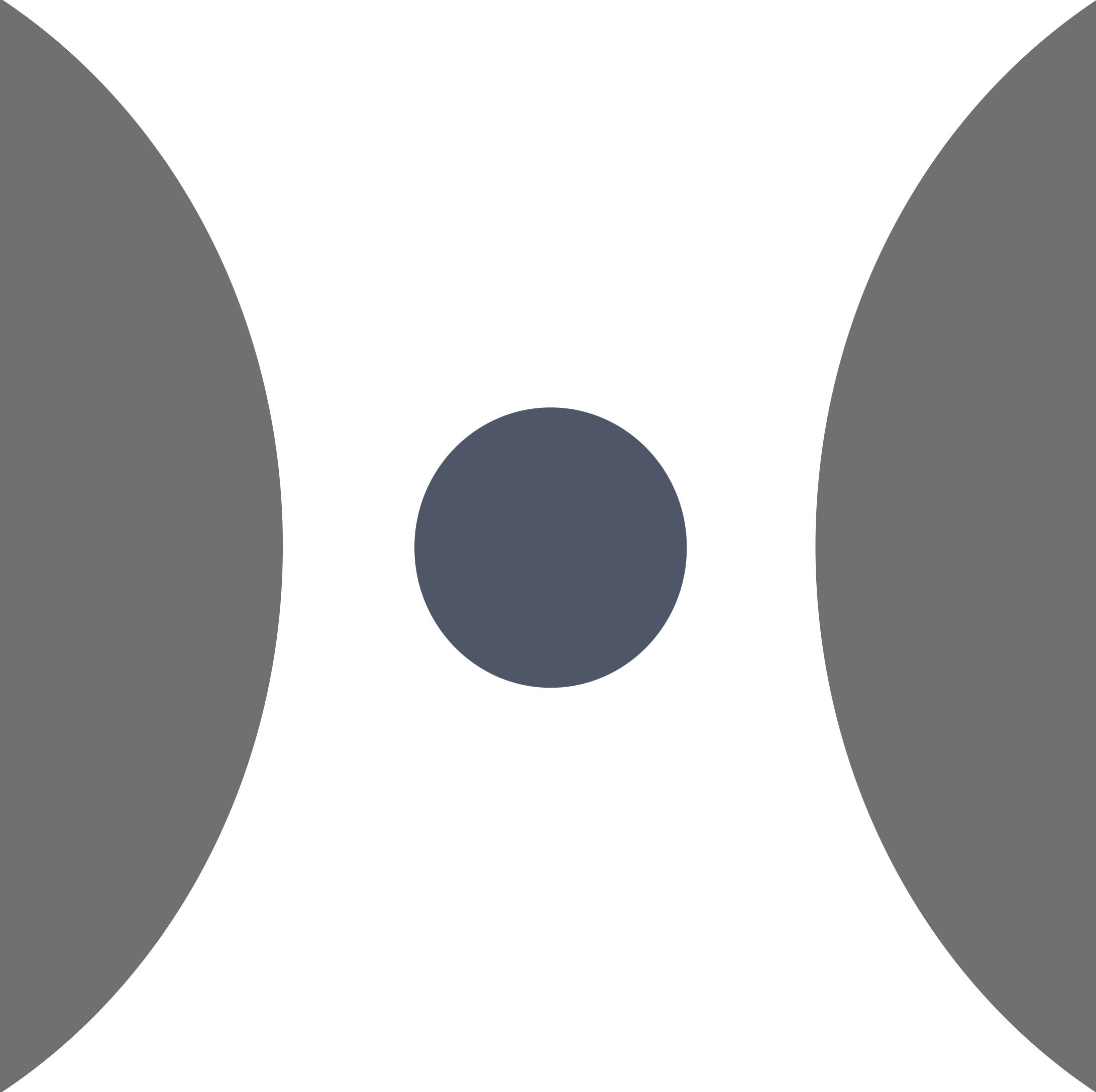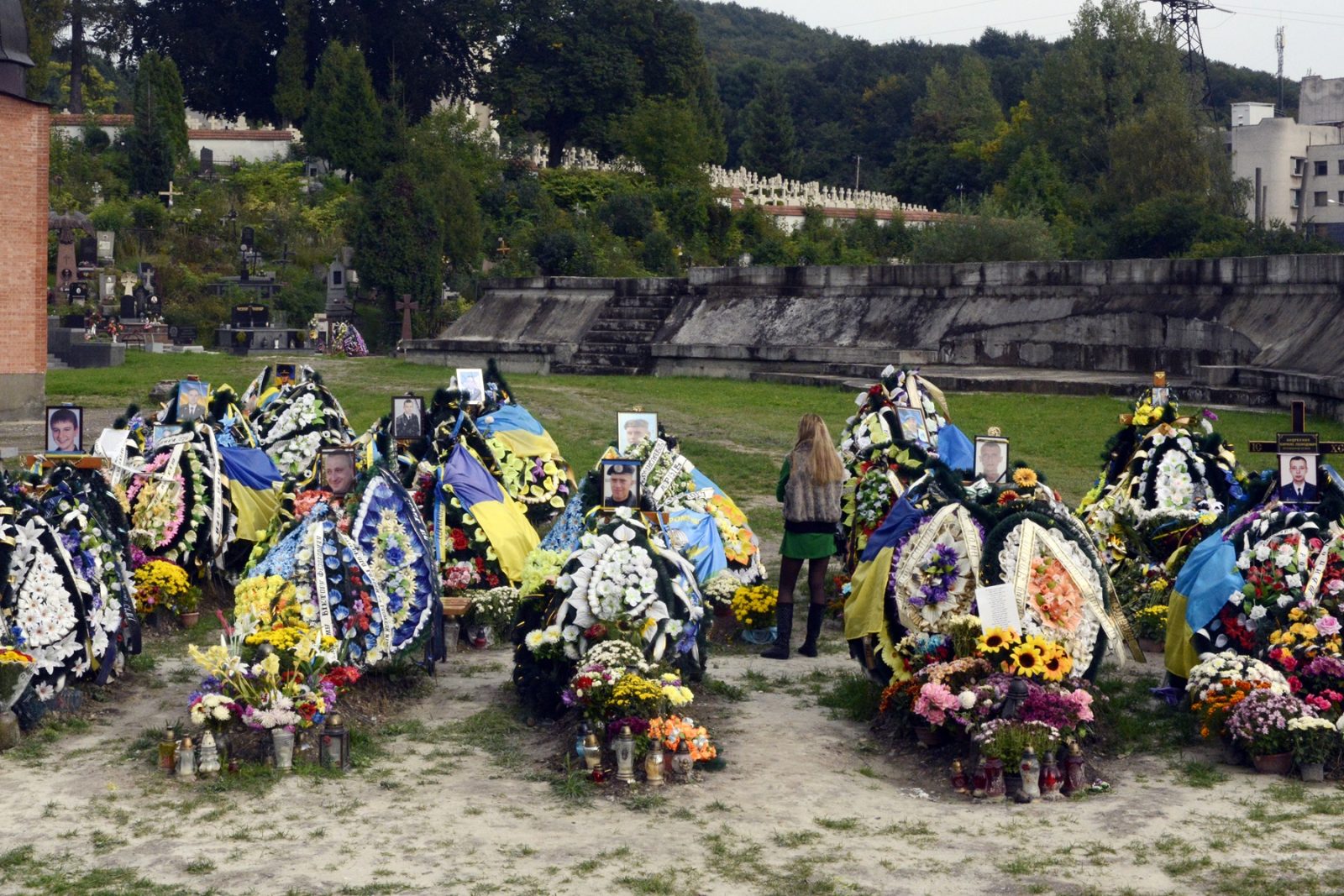Causes of conflict almost never lie entirely on one side
In 2014, Dolph Kessler was in Ukraine for a photo project. Then the thought crossed his mind that things could get completely out of hand. When Putin made his raid in February 2022, he was shocked. “But there was a second emotion behind it. I was also angry that it had come to this and had thoughts like: this war was not necessary.” This summer his book War or Peace, Want to Win or Draw was published. “Prior to Putin’s invasion, the West did not want to seriously discuss the option of a neutral Ukraine.”
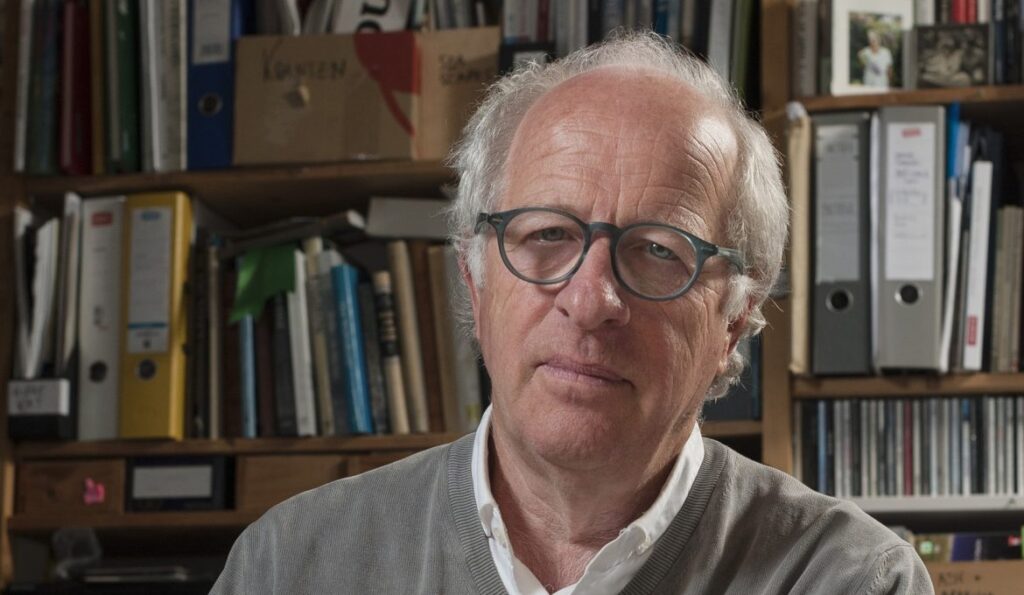
Dolph Kessler (Amsterdam, 1950) studied urban planning in Delft. He has lived in Friesland since 1976. He was, among other things, a planner and alderman of Leeuwarden (PvdA). From 2003 to 2006 he attended the Amsterdam Photo Academy. He has been a documentary photographer since 2006 . He prefers to present his work in photo books through his publishing house Mauritsheech Publishers.
He set up a separate publishing house for his last book on war and peace, focused on polemological knowledge (www.peace-dialogue-publications.org).
How and why did you become interested in war and peace?
That kind of came naturally. In October 2012 I started my fourth major photo project and made the photo book ‘Lviv, city of paradoxes’. Lviv, a beautiful Habsburg city in western Ukraine with an impressive history, stole my heart. Ukraine was still a quiet country at that time. Almost nothing ever happened. In the summer of 2014, when the book was presented at an international book market in Lviv, things were completely different. The uprising on Maidan had been over for six months. In the east, the civil war in Ukraine was already in full swing. I visited the cemetery in Lviv, where the first women, mothers and children were mourning around six fresh graves.
Back then, in 2014, I already had an uneasy feeling and the thought that things might get completely out of hand. I started to delve into the precise background of the conflict. I soon became a convinced supporter of a neutral position for Ukraine – militarily speaking – as Finland and Austria also chose in the years after the Second World War. A choice that has worked out particularly well for both these countries. In my opinion, military neutrality, framed within international agreements, also offered Ukraine the best opportunities for economic development in peace and security.
In an opinion piece in the Leeuwarder Courant I characterized the war with the word ‘combat divorce’. We know this between partners or spouses, but I thought and think the word also applies to countries.
Russia and Ukraine have been closely intertwined over the past centuries. They have had a de facto symbiotic relationship at times. And suddenly one of those countries decides that enough is enough, that they want to stand on their own two feet and that they even want to have a courtship with their neighbor. This is hard on the partner who has always been the boss in the relationship. And as happens in a contested divorce, hassle and later conflict arise. First there is blackmailing, but if that doesn’t help, there is fighting.
The existing way of thinking at that time assumed a struggle between democracy versus autocracy, and the constitutional vision was experienced as decisive. I thought that was too easy. I found a more realistic starting position more plausible. And I found this realistic position amply reflected in all kinds of leading political scientists. For this interview, let me mention one quote from the American political scientist John Ikenberry: “The fact that Putin violently intervened in Ukraine does not show that the Russian empire is on the march again, but that the Western system is so close to Russia that Putin is forced to defend Russian interests in a way that causes great damage to Russia. The war in Ukraine therefore does not show that the West must arm itself against a very successful Russia, but that the West has cornered its geopolitical rivals . ”
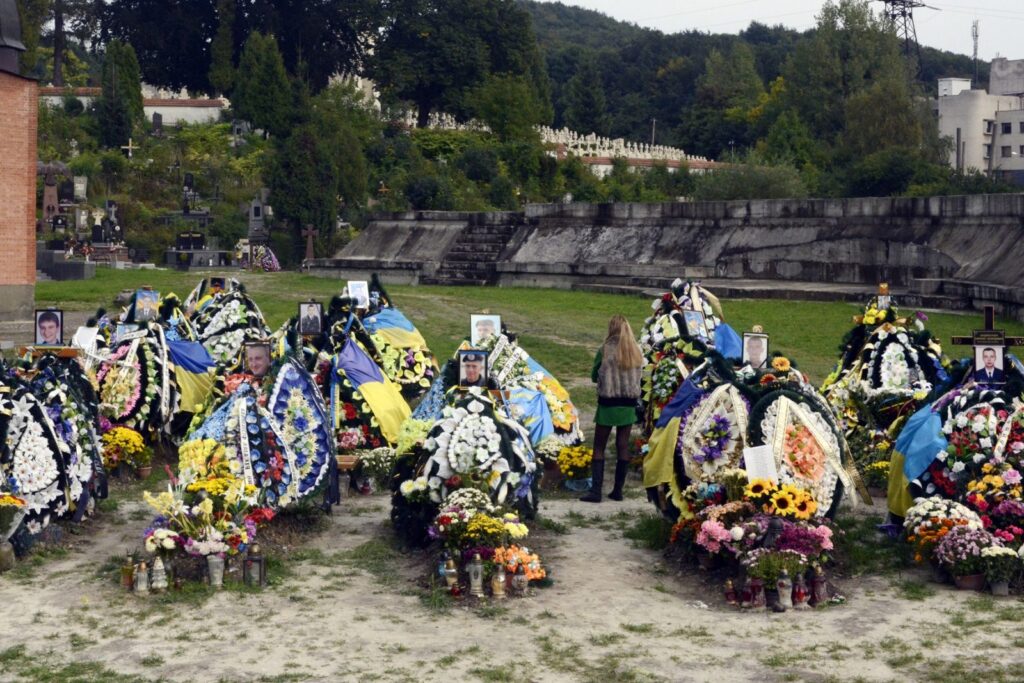
When Putin, almost ten years later, made his invasion in 2022, like most people, I was shocked and hated what I saw on television. But there was a second emotion behind it. I was also angry that it had gotten to this point, and I kept having thoughts like: this war was not necessary. And: This war will only produce losers. And: How is it possible that the obvious solution of a neutral Ukraine has been missed. As a kind of ‘shock therapy’, I entered a second period of study to investigate these questions. And that is where my book ‘War or Peace, Want to Win or Draw’ emerged.
Can you explain to me what you want to say with this title? And what do you aim for with your book?
The title arose from what you could call progressive insight. I came to believe that the neutrality turn in Ukraine was not so much missed, but that the West simply did not want to seriously discuss the option of a neutral Ukraine. It did not fit in with the negotiation process and the goals they had. It completely changed my analysis of the war in Ukraine. There were forces at stake that I had not previously realized so clearly. This shifted my attention from neutrality, as a specific solution in certain situations, to the negotiation processes in geopolitical conflict situations themselves. What ‘mindset’ does one operate with in geopolitical conflict situations? And those are choices. With different choices there are different outcomes.
The question must therefore always be asked which fundamental starting points we choose when resolving potential conflict situations. And my main conclusion is that today, in the final analysis, much decision-making in the geopolitical landscape is motivated by the desire to win or not to lose. The decisive factor in the behavior of great powers is the struggle for power. And in the period after the Second World War, the United States plays the leading role.
The US wants to remain dominant and that is the way they have organized their foreign policy, for eighty years and all over the world, including in Ukraine. In Ukraine, the lack of neutrality was not so much stupidity as a conscious choice.
Don’t get me wrong; in sports and games there is nothing wrong with wanting to win, but there are no human lives at stake. However, as soon as there is a conflict between groups of people, countries and certainly between superpowers, I think it should no longer be about that. In conflicts that carry the risk of being fought by armed forces, with all the suffering and misery that entails, maintaining peace should be the aim. You could also say: the draw is the bet. I call this approach ‘peace-oriented preventive dialogue’. I see this approach as the third way between pacifism on the one hand and ‘war as the continuation of politics by other means’, the vision of the Prussian general Carl von Clausewitz (1780-1831). I further elaborate on this third path in various points in the book and also pay attention to all the opposing forces that play a role.
What do you mean by that?
Maybe you should ask what I hope. I hope that ordinary citizens, but also people at the controls, realize more fundamentally that if you want to prevent wars, you have to abandon the desire to win per se. This third way in tackling political and geopolitical conflicts between states or blocs, i.e. the choice to resolve it together, is in a sense a paradigm switch. It is the fundamental transformation of the conceptual framework within which we function.
And I find such a paradigm switch all the more urgent in these times.
My first point in this context is that as inhabitants of planet earth, in addition to the climate crisis, we must also find answers to many new technologies in the coming period, such as artificial intelligence and biomedical interventions on body and mind. You could speak of developments beyond the human species. Some are already on the horizon; many are not yet known. All these problems are global in nature and require a joint approach through international consultation.
Secondly, we will also have to solve all kinds of issues related to the common grounds, such as the moon, space, Antarctica. Here too, we cannot use harsh conflicts between superpowers. It should be ‘all hands on deck’. But it isn’t. The superpowers are increasingly in conflict with each other and compete for first place on the monkey rock.
Thirdly, and I think this is the most important and dangerous… there are approximately a thousand nuclear missiles permanently ready for triggers worldwide and they have been doing so for seventy years. Do we really think that this will continue for centuries? Deterrence works as long as it works. But if it no longer works, things go completely wrong all at once. There is therefore a very good chance that things will one day spiral out of control in the world and a nuclear war will break out. It is completely wishful thinking to pretend that this can never happen. Even a nuclear winter is imminent, if only because of stupid mistakes and human errors. We have been walking along the edge of the abyss for seventy years.”
Do you really think such a paradigm shift is possible?
Yes, good question, I understand your hesitation, that’s how I looked at it for a long time. Until I realized that we have started thinking completely differently many times before. In that sense, humanity is actually doing quite well. One could compare the transition I propose to the gradual acceptance of the separation of church and state. That approach had not been accepted in our Western world for a few years. You could also think of the importance we attach to democracy. The belief that citizens should have a say in the future of their community. This has been institutionalized in our parliamentary democracy. It is not the king who is in charge, but all of us – thanks to the French Revolution. Women’s emancipation, including equal rights, can also be seen as a fundamental change in actions and thinking. Finally, you could also think of the abolition of slavery, which was also only relatively recent. For the first time in history, every person was given their own individual value, at least on paper.
This paradigm switch, that is, distancing ourselves from the power struggle, I call it the struggle on the monkey rock in the book, will of course be a tremendous task for humanity and it will probably take a long time, but there is actually another way. not.
Okay, but back to today’s reality: Is ‘a level playing field’ possible and desirable now that Russia poses and seems to remain such a permanent threat to Ukraine?
Once a conflict has escalated and fighting occurs, you are too late. Military neutrality would have been the most obvious ‘draw choice’ for Ukraine. It would have prevented this whole war. And well, what should be done now? That’s a difficult question. One thing is certain for me: in any case, do not escalate further and push each other further. That could easily go completely wrong again and then we would have a real world war. And this will also be fought in Europe. Everything indicates that the parties are becoming increasingly entrenched, nothing indicates any caution. So I am strongly in favor of a ceasefire and peace negotiations.”
No peace without justice first, we often hear regarding the Palestinian issue. Does this probably also apply to Ukraine? What is your view on the idea that justice and respect for international law should be the basis for peace?
That is a complex question. Justice and respect for international law is of course a great good and a wonderful starting point. But it is also formulated at a high level of abstraction. And in practice, at least the great powers do not adhere to it. Including the United States, which has not signed almost all international treaties for years and prefers to ignore them completely. So if you come out with the concepts of justice and respect for international law in geopolitical conflicts, that is of course fine, always do so. But in practice, tensions between the great powers have now increased so much, partly due to the Ukraine conflict, that we can no longer hold each other accountable. The conversation, the dialogue, is dead and that is not only Putin’s fault, the West itself participated in it.
As free, Western countries, don’t we need strong armies to defend ourselves against large countries ruled by dictators, such as Russia, who could threaten our open and free societies?
Let’s make the right analysis. NATO is the greatest military power that has ever existed on earth. Sixty percent of all weapons are in the hands of NATO. For example, NATO has a ten-to-one advantage in military aircraft. So Putin looks three times before attacking one of the NATO countries. Russia’s invasion arose from Ukraine’s possible NATO membership. Russia felt threatened and unheard.
And the fact that we are now head to head is the result of this. If Putin becomes a threat, in my opinion it will not be militarily, but mainly through the nexus of cyberwar.
So Putin’s brutal invasion of Ukraine in 2022 is not the only reason things are getting so out of hand in eastern Europe? You see more factors and also a broader context?
There is certainly a broader context. The West has simply tinkered incredibly. I still get very angry about it every time I see the images of the war in Ukraine and all the misery that the Ukrainians have to experience. In my book I once wrote it down as follows out of anger :
In my heart I believe that as a Western community we should be ashamed that we did not want to listen to Putin. He has repeatedly stated that Ukraine as a NATO member was a ‘no go’. No means no. We carelessly pushed it aside, did not think further, did not create a worst-case scenario, did not delve into Russia’s motives. We have ignored advice from many ambassadors. We, or rather the US, have also systematically encouraged Ukraine to apply for NATO membership. We still participate in world politics with the same superiority with which we conquered other continents in the centuries before. Long before Putin’s invasion, enormous mistakes were made on the Western side. If someone says he has a problem with something, we apparently don’t have to listen, we can ignore it, we don’t have to think about what that would have been like for us. In my view, it is a great frivolity how we have handled this conflict with Russia, which is not in itself a super complicated conflict, and allowed it to grow to where we are now. For decades completely disturbed relationships, not only regionally, but globally, on a collision course with each other, continued to escalate. This is worse than Von Clausewitz, this is arrogance, nonchalance and stupidity. We have neglected ordinary diplomacy, let alone sought peace-oriented preventive dialogue. We have risked world peace, while we need each other so much .
So that’s my first point: not wanting to listen. The second point is the broader context of Western arrogance, and I think that is a huge problem. What is happening now is largely of our own making. Systemic arrogance, complacency, feelings of superiority and the inability to see our own part. We should take a long, hard look in the mirror. Perhaps Russia is not the problem, but we are our own worst enemy. It is also not without reason that the ‘Global South’, that is to say southern countries such as Brazil, Indonesia and South Africa, are gradually becoming completely fed up with the West. We’re losing them all.
Perhaps a quick excursion to the Bible, which would be appropriate in an interview with Nieuw Wij. While Googling, I discovered that the concept “the greatest enemy is ourselves” can be found in various religious texts. I am not religious myself, but I do find it surprising that thinking about power and wanting to remain in charge and going for violence and war to get your way can be seen from a biblical perspective as ‘thinking and living according to the flesh’. As Joke Tan wrote: “It is so difficult to deny the flesh and choose a path with God. It is so much easier to give that flesh its way and take the road that leads to death. “An interesting angle, I say as an atheist.”
What is your view on the explosion of arms spending and the further militarization of the West? Are they necessary at the moment against Russia and possibly other major powers?
The further explosion in arms expenditure is not necessary. NATO is already the strongest military force in the world. That’s the practical answer. The polemological answer is that this increasing growth of more and more new weapons is becoming a self-fulfilling prophecy. You think you will be safer because you are better protected, but in reality you only increase the risks of war or even nuclear war. It’s all based on the US’s enormous need to remain in charge. To live according to the flesh, you could say in Biblical terms. The US can already strike back in a superlative manner. Does that necessarily have to be in the three double superlative? The offensive strategy with which NATO now appears to be operating is really a first-class route to a lot of misery and trouble.
Take for example how we deal with China. China has almost never waged offensive wars. They are down 10-1 compared to all the offensive wars and colonial projects the West has carried out. But China has four times as many inhabitants as the US. Chinese are smart and enterprising. So there will simply come a time soon when they have a larger economy than the US and are more ‘powerful’ in economic terms. So what? Should we therefore suddenly see them as the enemy and try to prevent that at all costs, perhaps even by going to war? Should our children and grandchildren be grateful to us for that? What complete nonsense.
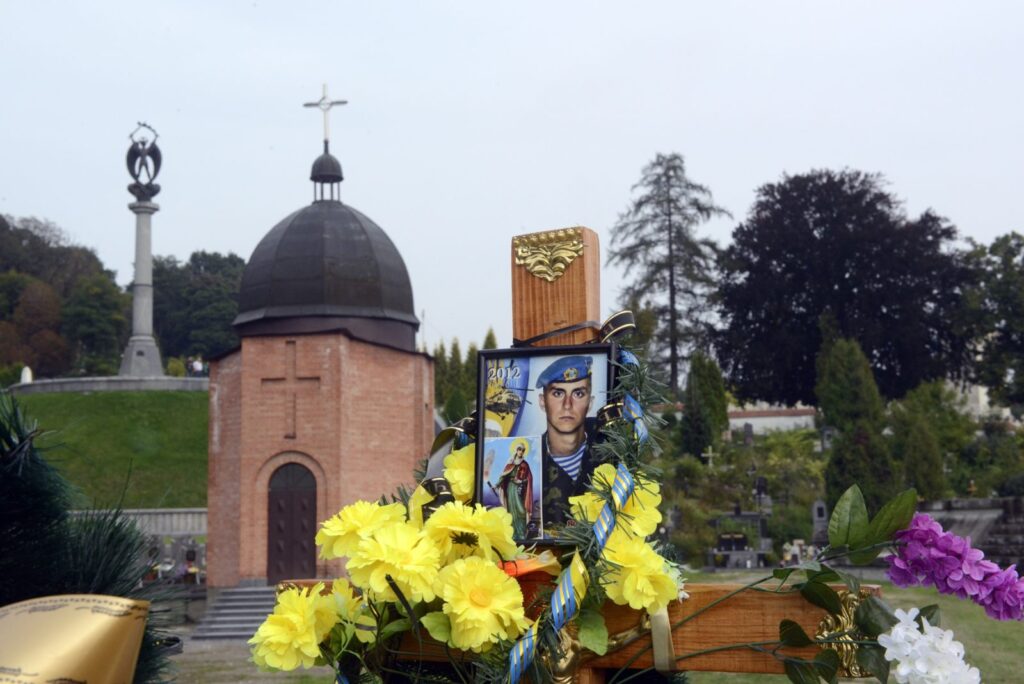
What is peace more than the absence of war, both in small and geopolitical terms? Why is working on peace, also in a preventive sense, so important?
True peace is much more than the absence of war. I am increasingly beginning to recognize the importance of safety. Real peace comes from inclusive security. I feel safe because you feel safe. You feel safe because I feel safe. That is an approach that the Church and Peace organization has been working on for some time.
Finally, what would you like to tell the readers?
I really hope that those who read this interview will also take a very critical look at our own role in the West. The causes of conflicts almost never lie entirely with one party. At least in the West we are still allowed to think independently. That is a great thing, because it allows us to escape the propaganda of others, but also from the propaganda of ourselves. If we continue to behave like herd animals and all continue to chase our so-called ‘own right’, we will really have a huge problem. Of course, this is how most wars have been started and fought to date. But in a world where everything is immediately global and where hydrogen bombs, both strategic and tactical, can be used as military weapons, this is playing with our own demise, perhaps not today or tomorrow or in 2030, but certainly in the next two centuries. .
I recommend to everyone Friedrich Glasl’s theory of the escalation stage of how a conflict proceeds. The final stage, on the third level, where only losers fight each other, is ‘into the abyss together’. I fear we are well on our way there.
The book “Oorlog of vrede, willen winnen of gelijkspel” (War or Peace, Want to Win or Draw) by Dolph Kessler is at this moment available in Dutch and can be purchased in Dutch bookstores and via the webshop of www.wijdemeer.nl
The book has 220 pages and costs 12.50 EURO. ISBN number: 9789083426211.
Publisher: Peace Dialogue Publications.Those interested in an English translation can request an English PDF from the author by sending an email to: [email protected]
